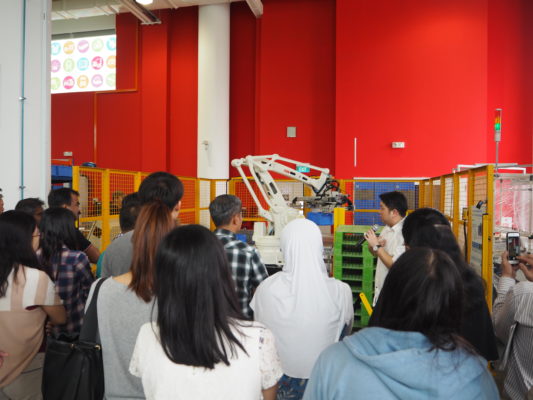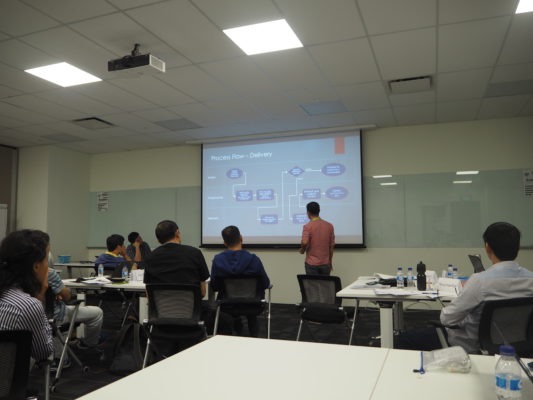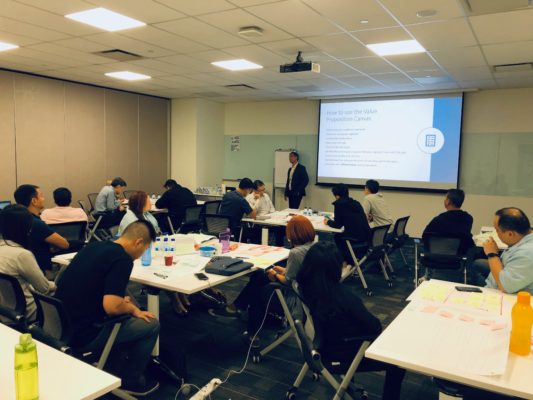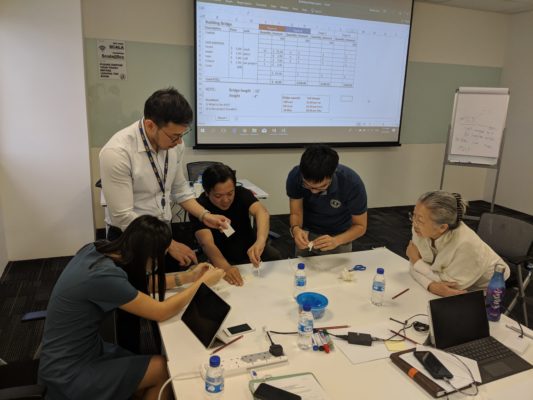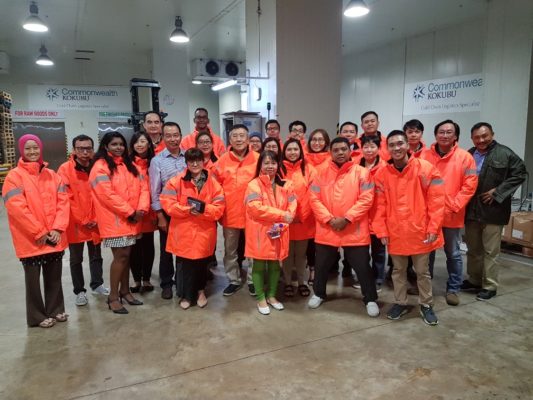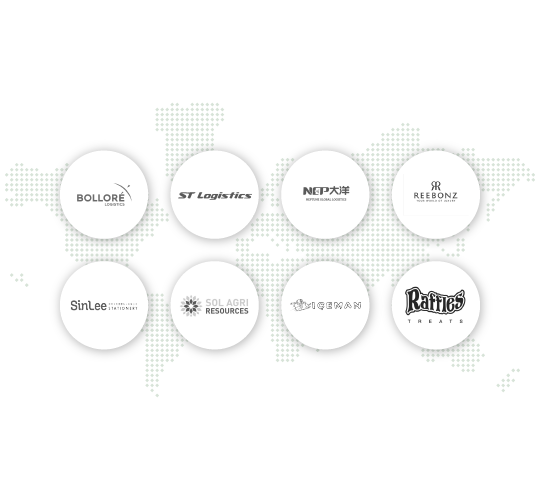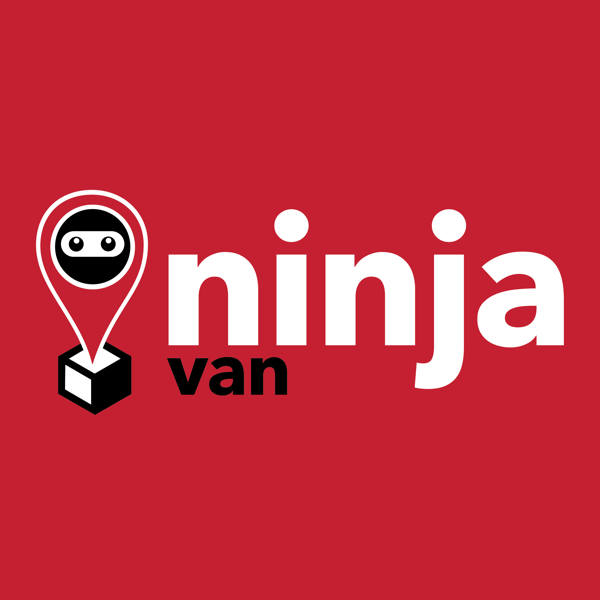Analyse current supply chain operating models with respect to changing customer needs, improved inventory management, delivery time and cost savings.
- Supply Chain Operation Elements
KPI – Flow Time & Utilization Rates (efficiency) - Process Improvement Techniques & Tools
- Industry Best Practices (SCM Ops)
- Future Business Needs Projection Techniques
- Project Future Demand
- Collaborate with Key Stakeholders
- Analyse gaps (current vs best in class)
- SCM Optimization Implementation
Course Objectives:
At the end of this course, participants will be able to:
- Project future demand for supply chain operations
- Collaborate with critical supply chain stakeholders to analyse gaps of current supply chain operating models with respect to key performance indicators, current industry best practices and future demand
- Implement supply chain optimization plans
Understand physical logistics operation and using analytical models to improve business processes and cost efficiency & savings. This includes using industry best practices as case study.
- Physical logistics operations
- Industry best practices for logistics operations
- Network analysis using methods such as Dijkstra’s Algorithm and Ford- Fulkerson’s Algorithm
- Future business needs and trend projection techniques such as time series methods, linear regression, Holt’s method and decomposition method
Course Objectives:
At the end of this course, participants will be able to:
- Project future demand for logistics services
- Analyse future logistics operations trends such as process structure, customer involvement, resource flexibility and capital intensity
- Analyse gaps of current logistics operating model with respect to key performance indicators, current industry best practices and future demand
Manage control systems and information technology to reduce the need for human work in the production of goods and services in order to streamline operations in terms of speed, reliability and product output.
- Warehouse automation technology available in the industry such as RFID identification technology and robotic warehouse system
- Transport automation technology available in the industry such as autonomous vehicles and drones
- Statistical analysis techniques
- Techniques and tools for automation technology integration
Course Objectives:
At the end of this course, participants will be able to:
- Analyse areas in logistics operations where automation can replace inefficient processes
- Identify automation technology that can improve or replace inefficient processes
- Implement test methodologies on selected automation technology to determine suitability
- Implement automation plans
- Maintain the performance of automation
Implement material management plans on daily basis with regards to schedules, manpower and quality.
- Processes and techniques to plan, schedule, and control flow of materials
- Physical inventory management techniques and tools
- Classification of materials and respective handling procedures
- Information Technology (IT) application for developing Bill of Materials (BOM) and setting up inventory items
- Proper methods of disposal for different types of material
Course Objectives:
At the end of this course, participants will be able to:
- Implement material identification procedures and respective handling procedures
- Implement material handling systems to ensure right materials and right quantity are transported from point of origin to point of consumption and disposal
- Implement IT applications for setting up inventory items and develop BOM
- Analyse issues and concerns in material issues and receipts
Manage and administer process enforcement, analytics, and optimisation of Transport Management System (TMS) for moving freight in all modes, including intermodal movements
- Supply chain management approaches
- Multi-modal and intermodal movement management approaches
- Decision analytics
- Optimisation tools and techniques
Course Objectives:
At the end of this course, participants will be able to:
- Analyse effectiveness of transport plans using established benchmarks and parameters
- Organise planning of transport operations
- Implement execution of transport operations
- Analyse key performance indicators such as cost and efficiency indicators
Develop warehouse locations, designs and layouts for storage area segregation with consideration for the characteristics and capabilities of different load handling and storage equipment
- Principles of warehouse planning, warehouse storage and layout plans
- Storage and racking styles
- Warehouse regulatory, safety and security principles
- Transportation requirements
- Principles of warehouse roles and design
- Relationship (REL) charts
- Basic effective cost model simulations to determine lowest cost of ownership or optimal Return on Investment (ROI)
Course Objectives:
At the end of this course, participants will be able to:
- Analyse warehouse designs and propose warehouse layouts based on space, labour, and equipment requirements
- Implement designs while taking into consideration transportation methods and safety and security principles of warehousing
- Collaborate with warehouse operations to obtain inputs for warehouse design
- Analyse cost models to calculate ROI of space utilised and revenue contributions
Regulate outflows and inflows of stocked items as well as shipment, loading and storage activities using inventory control systems, methodologies and tools
- Inventory planning and replenishment systems such as order point and materials requirements planning (MRP)
- Audit requirements
- Concepts of inventory control systems or tools such as barcoding and SAP
- Reporting templates
- Audit techniques to gather evidence
- Annual stocktaking policies
- Principles of Kanban, LEAN, Six-sigma, First In First Out (FIFO) or Last In First Out (LIFO)
- End-to-end fulfilment process
- Principles of electronic data interchange (EDI)
Course Objectives:
At the end of this course, participants will be able to:
- Maintain appropriate inventory control methods to be used for independent demand items, and dependent-demand items and perishables respectively
- Implement appropriate inventory control systems by displaying understanding of Kanban systems
- Analyse audit reports in accordance with organisational procedures, legal requirements or ISO guidelines
- Implement inventory control systems and processes through minimum and maximum stock levels
- Collaborate with users to ensure appropriate variables such as data availability and data limitations do not affect accuracy of reports
- Analyse information flow and product identification compliance through EDI
Establish policies and procedures for sustainable environment practices covering green procurement, gas emissions, disposal methods, product quality standards and regulatory compliance
- Principles of sustainability management in logistics
- Environment compliance regulations
- Workplace safety and health regulations
- Disposal regulations
- Components of carbon footprint reduction plans
Course Objectives:
At the end of this course, participants will be able to:
- Implement environmental policies and procedures in accordance to regulatory requirements
- Analyse procedures for assessing compliance with environmental and sustainability regulations
- Analyse information on environmental and resource efficiency systems
- Implement environmental and resource efficiency improvement plans
- Implement policies and procedures that provide guidelines on regulated waste disposal methods
- Analyse appropriate waste treatment methods including waste to landfill, recycling, reuse, recoverable resources and wastewater treatment
- Evaluate potential initiatives for carbon footprint reduction plans


